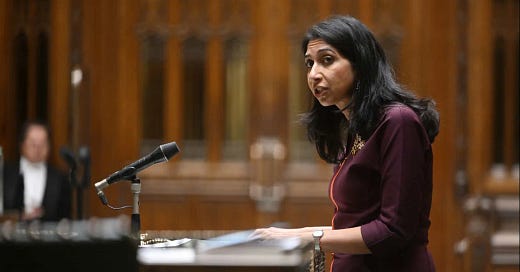Senior Conservatives — including a cabinet minister — say their party is likely to campaign to leave the European Convention on Human Rights at the next election if Rwanda flights continue to be blocked, according to a report this morning by the BBC’s chief political correspondent Nick Eardley.
The cabinet minister who has campaigned most actively agains…
Keep reading with a 7-day free trial
Subscribe to A Lawyer Writes to keep reading this post and get 7 days of free access to the full post archives.



